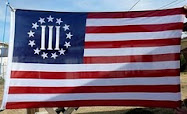Wednesday, December 13, 2006
Self-Ownership, Not State Ownership
Recently, the US Office of Foreign Assets Control wrote to hundreds of US researchers scheduled to attend the 4th International Symposium on Coma and Death in Havana, Cuba, warning that they faced "criminal and/or
civil penalties" if they attended the March meeting without a specific license. No licenses were granted. Being good citizens, or afraid to band together and stand up to the threat, none of them attended.
Sad. Say what you will about Castro, and I'm no admirer of the dictator, he has made medical research a high priority in Cuba, especially since he appears to be dying. Blocking American researchers from symposiums there is a loss to us all.
Like most government programs, the 40 year US trade embargo with Cuba has achieved almost the opposite of its purported purpose. It has failed spectacularly in its basic goal of undermining support for Castor's regime, and has given the dictator an easy way of explaining his failures.
Don't bother to ask why the US establishment continues this foolishness when there is no evidence of the policy working. It's the wrong question. Evidence of effectiveness has ever been a criterion for continuation of government policies (the war on drugs comes to mind). Like all official policies, the embargo serves political ends, not the public good.
The more important question is, why do people swallow the concept that their assets and their lives belong to government? Years ago, when I informed my four-year old daughter that she belonged to me, she instinctively challenged me. "You belong to you, daddy, and I belong to me."
A four year old can see the obvious fallacy in the idea that one person can own another, but after a decade or two of compulsory state "education," this libertarian instinct is crushed and the citizenry evolves into what H. L. Mencken so charmingly dubbed "boobus Americanus."
Docile and trained, it never occurs to most Americans to be outraged at the idea that politicians and bureaucrats can control where they travel. After all, boobus already accepts without question (among countless other indignities) that government must be able to invade their privacy, monitor their bank accounts, tell them what they should eat, drink, smoke, and invest in, as well as confiscate whatever amount of their income and assets it chooses.
Libertarian Murray Rothbard once said, "Boobus Americanus is doomed to be boobus Americanus forevermore." Fortunately, thinking individuals don't have to suffer the same fate. Individuals who value personal freedom can still arrange their lives to retain ownership of themselves and their assets. For instance, they can pursue options such as owning their own business, investing internationally, even living overseas. But it begins with a decision not to accept the idea that the state is their rightful master.






















